As Egypt cracks down on foreign journalists, reporting from the country becomes increasingly dangerous
By Peter Schwartz, contributor, EgyptianStreets.com
It’s not much fun being a foreign journalist in Cairo right now. To be sure, it’s not much fun for Egyptians either!
This infernal curfew grows less tolerable by the day, while the political uncertainty and economic slowdown wrought by the past month’s flux casts a depressing pall over this liveliest of cities.
But throw a foreign passport, press card and un-Egyptian complexion into the mix, and Cairo can be a downright hostile place indeed.
It all began soon after June 30th, when anti-Morsi protesters, infuriated by what they saw as unsympathetic Western coverage of their cause, started railing against CNN, BBC and Al-Jazeera in particular.
Soon enough a number of marches to Tahrir Square carried more anti-American media banners than anti-Morsi placards.
“CNN shame on you,” the most ubiquitous of the signs read, after an on-air technical glitch saw Tahrir labelled as a pro-Morsi gathering. Another transposed the CNN logo on to that of the Muslim Brotherhood’s crossed swords.
US ambassador Anne Patterson’s less than fulsome support for Tamarod’s campaign to topple Morsi exacerbated many Egyptians’ distrust of foreigners yet further. “You’re not American are you?” seemingly every other taxi driver asked.
Many protesters were at pains to point out that it wasn’t the American people with whom Egypt had a problem, it was their government and its diplomatic representatives. Sadly this wasn’t a universally accepted nuance.
I was routinely accosted in and around Tahrir, pointedly accused of being a spy and lectured on the iniquities of Western reporting. “Why do you call it a coup? Why do you support the Muslim Brotherhood terrorists?” I was grilled.
Where previously most reporters were warmly received, now we had to contend with anger and distrust. One exceptionally irate man demanded to know why CNN weren’t in square documenting the hundreds of thousands (millions he insisted) who had assembled to demand Morsi’s ouster. Perhaps he hadn’t noticed the riot of anti-CNN posters. I’m not sure they’d have emerged in one piece.
Much suspicion of Western journalists in Cairo is predicated on the assumption we have a soft spot for the Muslim Brotherhood, but it’s a horribly misguided assessment.
Most of us are fully aware of the group’s wholly unpalatable views, its violent past and near-unquenchable lust for power. We bore witness to the Morsi government’s incompetence and heavy-handed approach to criticism, and as social liberals (I feel fairly confident in guessing that almost every Western reporter here backs gay marriage), we’re particularly appalled by the Muslim Brotherhood’s sectarian rhetoric and immoderate views.
But however distasteful we might find the Brotherhood’s politics and behavior, there’s no sugar-coating the brutality with which they’ve been treated over the past few weeks.
We were at Rabaa and in Nahda, and the reality – unspoken by most Egyptian news sources who long ago abandoned any semblance of objectivity in their impassioned cheer-leading of the security forces- is that few camp inhabitants were armed.
That the police used a bare minimum of force is another fallacy continually disproven by foreign reporters.
I cowered behind the Muslim Brotherhood’s haphazard barricades at Mustafa Mahmoud Square in Mohandiseen two weeks ago, as the police peppered the mostly unarmed Morsi supporters with live fire.
This is not to say of course that these protesters were peaceful. The anti-Christian sentiment alone emanating from these sit-ins was highly inflammatory and clearly responsible for unleashing a vicious wave of vengeful attacks on churches- not to mention police stations and other government buildings. And we reported as much.
But by punching holes in the official government account, foreign journalists have come in for a barrage of dangerous vilification.
State and private media have actively conspired to tar Western reporters as “friends of Al Qaeda,” enemies of Egypt’s ‘corrective revolution’, and obstacles to the military’s ‘war on terror’.
Privately-owned ONtv ‘reported’ that foreign journalists had been detained at the airport while attempting to bring weapons into the country. The State Information Service released a statement decrying us for “conveying a distorted image that is very much far from the facts.”
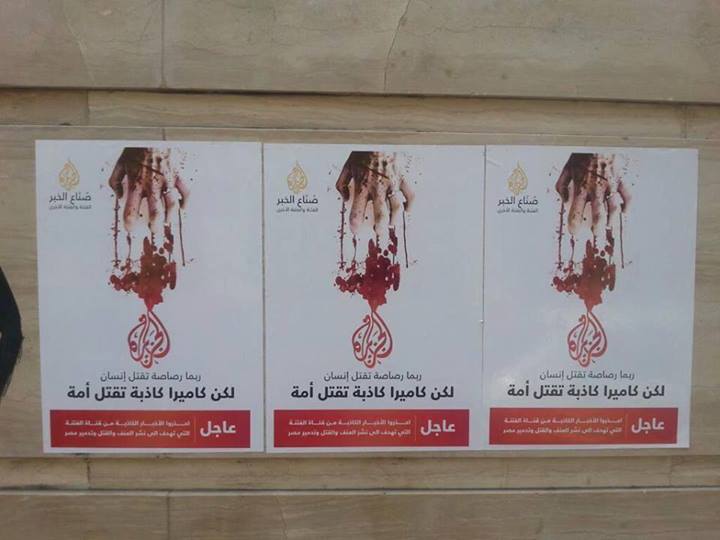
With news sources like these, there’s no mystery as to how many Egyptians have arrived at their jaundiced and inaccurate perception of foreign journalistic meddling.
To be fair, some of Al-Jazeera’s coverage has displayed a clear preference for the Brotherhood. But what does it say of Egypt’s free speech pretensions, when Al-Jazeera’s journalists are continually harassed and detained, its offices raided and its Egyptian affiliate taken off air?
“Cairo used to be a terrific place to report from,” a veteran Middle East correspondent lamented on Twitter.
But it’s a different proposition all together when journalists are subjected to house calls from the police and have their flak jackets and gas masks confiscated on a whim.
I for one have taken to carrying a book around in case I’m detained (again).
Seeking to blame foreigners for domestic difficulties is scarcely an original tactic – It’s what Assad’s since day one of Syria’s civil war- but, well, that’s not really the company Egypt wants to keep is it?
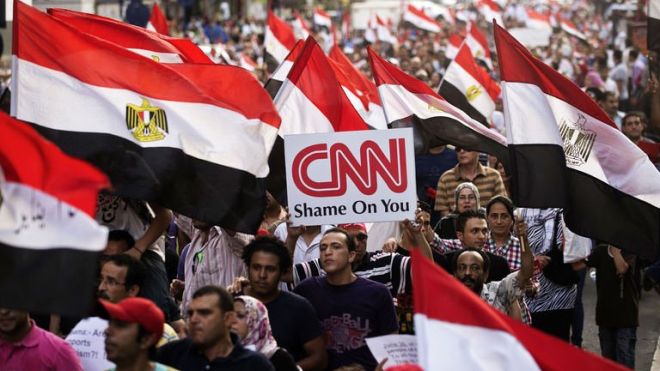
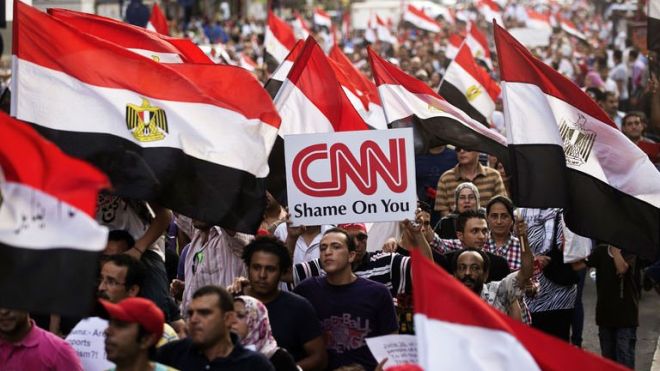



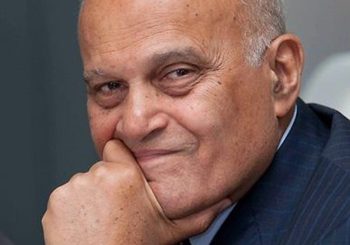
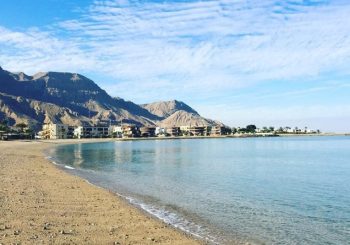

Comments (9)
Reblogged this on Oyia Brown.
Peter, as an Egyptian living abroad, I have to disagree with u. The problem is that western media as reported based on Al Jazeera. Therefore they present to the west the same bias view. I rarely hear about the evil side of the brotherhood. All we see on the news is unarmed brotherhood are being attacked.
So this is why people are upset.
If the media reported that some brotherhood members are armed while others are not, then perhaps we would not be as upset.
Additionally if you reported that Morsi was crippling the country and couldn’t be left for another 3 years to destroy the country beyond repair, again we wouldn’t be so upset